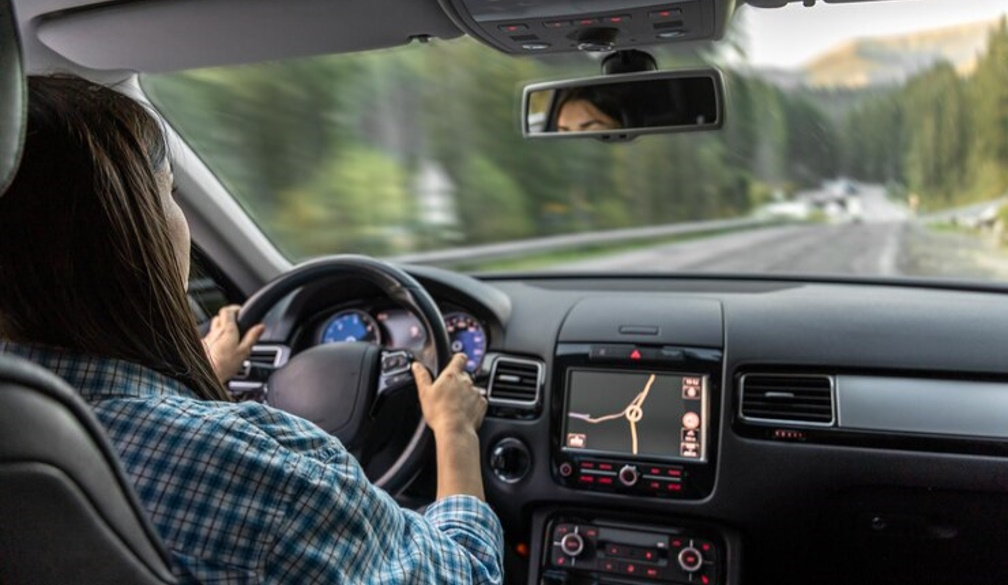The Crucial Role of Muscle Reflexes in Safe Driving

When it comes to driving, most of us think about skills like focus, decision-making, or knowing the road rules. But what about the skills our bodies handle automatically, without us even noticing? Muscle reflexes—those instinctive, lightning-fast reactions—are often overlooked, but they’re absolutely vital for safe driving. They’re the unsung heroes that can make the difference between a close call and a dangerous accident.
As drivers, we rely on our reflexes to respond instantly to unexpected situations, whether it’s a car suddenly braking in front of us, a child running into the road, or a pothole we didn’t see until the last second. Reflexes are nature’s way of keeping us safe, and understanding how they work can help us become more prepared and attentive on the road.
What Are Muscle Reflexes?
Muscle reflexes are involuntary responses triggered by the nervous system. Think of them as your body’s autopilot for emergencies. They happen so fast because they don’t wait for your brain to weigh in. Instead, sensory nerves send a signal directly to your spinal cord, which processes the information and commands your muscles to react—all in milliseconds.
For example, the “knee-jerk” reflex (when a doctor taps your knee) is a simple demonstration of how reflexes work. But when it comes to driving, these reactions become much more complex and lifesaving.
How Reflexes Keep You Safe Behind the Wheel
Driving isn’t just about thinking quickly; it’s about reacting quickly. Reflexes allow us to respond almost instantly to challenges on the road. Here’s how they come into play:
- Emergency Braking: Imagine a child suddenly running out in front of your car. Reflexes kick in, helping your foot slam the brakes faster than you could consciously decide to do so. The speed of this response can mean the difference between a close call and a tragedy.
- Quick Steering Adjustments: You’re driving along and notice debris or a pothole at the last moment. Reflexes help you instinctively swerve just enough to avoid it without losing control of the car.
- Posture and Balance: Sudden movements like hard braking or sharp turns can throw off your balance. Reflexes help your body stabilize itself, ensuring you remain in control of the vehicle.
- Responding to Sensory Inputs: Reflexes help us process information like the sudden flash of brake lights, the sound of a honking horn, or the feel of a tire slipping on wet pavement. Without even thinking about it, your body reacts to keep you safe.
Factors That Affect Reflexes
Not all reflexes are created equal, and several factors can impact their effectiveness:
- Age: As we get older, our reflexes naturally slow down. This doesn’t mean older drivers can’t be safe, but it does mean they need to be more cautious and aware of their physical limitations.
- Fatigue: Ever notice how everything feels slower when you’re tired? Fatigue dulls reflexes and increases reaction times, making it harder to respond to sudden hazards.
- Substance Use: Alcohol, drugs, and even some medications can impair reflexes. These substances affect the central nervous system, slowing down the signals between your brain, spinal cord, and muscles.
- Medical Conditions: Conditions like multiple sclerosis or neuropathy can weaken reflexes. It’s important for anyone with such conditions to discuss their driving fitness with a healthcare provider.
How to Sharpen Your Reflexes
While some factors, like age, are out of our control, there are plenty of ways to maintain or even improve reflex speed:
- Stay Active: Regular physical activity, like playing sports, doing yoga, or strength training, can improve coordination and reaction times. Think of it as training your body to stay sharp and responsive.
- Get Enough Rest: Sleep is essential for both your brain and body. If you’re well-rested, your reflexes will be quicker, and your mind will be clearer.
- Eat for Brain Health: A diet rich in nutrients like omega-3 fatty acids, vitamins, and minerals supports the nervous system and muscle function.
- Avoid Substances That Impair Reflexes: Be mindful of alcohol, drugs, and even certain medications. Check labels for warnings about drowsiness or slowed reactions before getting behind the wheel.
- Schedule Regular Check-ups: Routine medical exams can help you spot and manage conditions that might affect reflexes, ensuring you’re always fit to drive.
Nick’s Take on Reflexes and Driving
Nick, a highly experienced driving instructor based on the Central Coast, has been teaching safe driving for over 10 years. When it comes to reflexes, he knows their importance firsthand.
“Reflexes are the silent heroes of driving,” Nick shares. “They’re what allow us to react in milliseconds when something unexpected happens. I make sure my students understand how crucial reflexes are—not just for their safety but for the safety of everyone on the road. It’s about being prepared and staying sharp every time you drive.”
Nick emphasizes that part of being a great driver isn’t just about knowing what to do; it’s about being able to do it quickly and instinctively when the moment calls for it.
Why Reflexes Matter Now More Than Ever
With the increasing complexity of modern roads—more cars, faster speeds, and more distractions—quick reflexes are more important than ever. Fortunately, technology is stepping in to help. Features like automatic emergency braking, lane departure warnings, and adaptive cruise control are designed to react even faster than humans, giving drivers an extra layer of protection.
But while technology can help, nothing replaces the importance of being alert, prepared, and in good health. Reflexes don’t just keep you safe; they keep everyone else on the road safe too.
By staying proactive about your physical health and understanding how reflexes work, you can become a safer, more confident driver. Whether you’re just learning to drive or have been on the road for decades, it’s never too late to appreciate and improve this critical skill. Stay sharp, stay safe, and let your reflexes do the work when it matters most.



